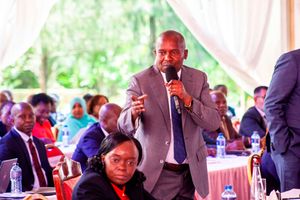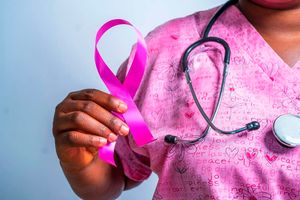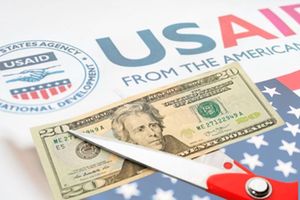
Supplies have run dry at hospitals and drop-in centres where sex workers and the general public access condoms for free.
A biting shortage of condoms and pre-exposure prophylaxis (PrEP) in Nakuru City and eight urban centres along the Northern Corridor is threatening to undermine Kenya’s fight against sexually transmitted infections (STIs) and HIV/Aids.
Supplies have run dry at hospitals and drop-in centres where sex workers and the public access the vital commodities for free.
The shortage puts the health, safety and livelihoods of thousands of commercial sex workers at risk, particularly those who operate along the busy Nairobi-Nakuru-Eldoret highway.
The affected stopovers include Mai Mahiu, Longonot, Naivasha, Gilgil, Kikopey, Pipeline, Salgaa and Sachangwan.
The highwaywhich part of the Northern Corridor is a critical transport artery linking Kenya to landlocked countries such as Uganda, South Sudan, Rwanda and Burundi.
Most West-bound cargo from the Port of Mombasa and Nairobi is ferried along this route, making the region a high-risk zone for HIV transmission due to frequent interactions between truck drivers and sex workers.
More than 4,000 sex workers operating in Nakuru and surrounding areas under the Smart Ladies umbrella group have raised alarm over the shortage.
Also Read: Kenya has a condom shortage, here's why
Their spokesperson Daisy Achieng described the situation as dire.
“There is an acute shortage of condoms and PrEP which are vital in protecting us from disease. Free condoms are no longer available. We urge the government to urgently intervene and restock these commodities,” said Ms Achieng.
The official added that most health facilities and drop in centres have depleted their condom supplies and the dispensers that previously provided free access are now empty.

In December 11, substandard sure lubricated condoms were recalled.
The crisis has prompted sex workers, youth and other stakeholders to call for urgent government intervention.
“This is a is a serious shortage. As students in Nakuru, we are concerned because our health is at stake. If we felt safe, we could focus better on our studies. The government should help by restocking free condoms,” said Paul Kamau, a student at St Paul University Nakuru campus.
On Tuesday, Nakuru County Health Executive Roselyn Mungai said the county is reprogramming and implementing key HIV prevention, tuberculosis and family health programmes in the wake of USAID’s funding withdrawal.
“We want to realign our work plans and support programmes previously funded by the United States Agency for International Development (USAID),” she said.
Also Read: Alarm over shortage of condoms in Homa Bay
In the past two days, county health authorities led by the Public Health Chief Officer hosted a technical assistance team from the National Aids and STIs Control Programme (NASCOP) targeting key populations of sex workers, men who have sex with men, people who inject drugs, and transgender persons.
Access to PrEP and community-led surveillance programmes has significantly contributed to the reduction of new HIV infections.
“Free-to-user condoms have had a huge impact in reducing HIV, STIs, and unplanned pregnancies. That’s why we advocate for a 100 percent condom-use policy,” said public health officer Dr Reuben Osiemo.
“We need a solution to replenish supplies. Condoms are a proven, cost-effective tool to protect sex workers, young people, and the wider population from infection and unplanned pregnancies,” he added.
Funding freeze
Kenya is currently facing a national shortage of condoms and PrEPs following the USAID funding freeze, a result of policy changes under former US President Donald Trump. Many counties are now reporting dwindling stocks or total lack of the commodities.
The situation has exposed Kenya’s heavy reliance on donor funding for critical health programmes.
Stakeholders are now urging the government to embrace a total market approach in which middle and upper-income Kenyans buy condoms at subsidized rates to reduce pressure on free public supply.
Kenya’s annual condom demand stands at 400 million pieces, but the government distributes an average of only 200 million annually.
The free condom distribution programme was launched in 2001 to curb rising HIV infections but with donor support diminishing, healthcare experts are calling for government investment in preventive healthcare and tax waivers on key commodities to sustain gains.
Nakuru City’s 4,000 sex workers operate day and night mostly along Kanu Street, Gusii Road, Baringo Road and Nehru Pandit Road. Others work in towns along the highway, including Salgaa, Naivasha, Pipeline and Kikopey.
They are represented under the Smart Ladies advocacy group chaired by Ms Achieng, which was formed to address challenges including health, legal representation, and security concerns.
The group was born in 2015 after a spate of killings targeting sex workers in Nakuru. At least 10 were murdered under unclear circumstances over a five-month period that year.
“We came together to protect ourselves and amplify our voices,” said Ms Achieng.
EMatara@ke.nationmedia.com









